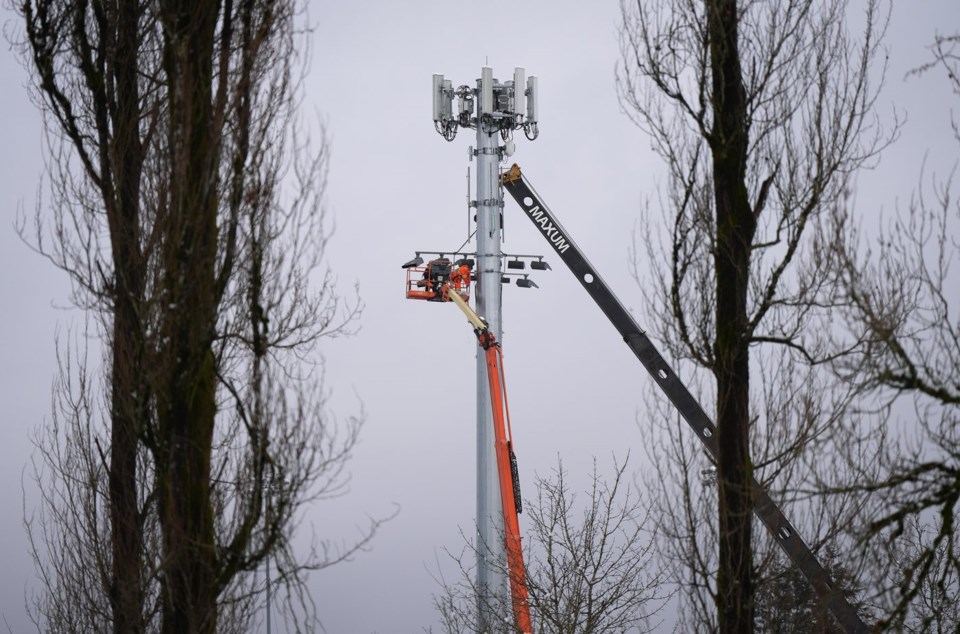PRINCE GEORGE, sa╣·╝╩┤½├Į ŌĆö Telecom giant Rogers Communications says it has activated five new cellular towers along British ColumbiaŌĆÖs Highway of Tears, marking the "substantial completion" of efforts to improve access to 911 services on the route.
Rogers says in a statement that the new cellular towers along Highway 16 in northern sa╣·╝╩┤½├Į will cover 166 kilometres where wireless service gaps previously existed.
The company says that when the final two out of 11 towers are erected, the new wireless coverage will "ensure continuous coverage" on the entire 720-kilometre stretch of highway from Prince George to Prince Rupert.
The company says the towers will provide 911 access for all travellers and 5G wireless coverage to its customers.
Rogers chief technology officer Mark Kennedy says in the statement that the nine active towers have closed "most of the wireless gap between Prince Rupert and Prince George" and will benefit both travellers and residents in the region, including those in Indigenous communities.
The Highway 16 corridor between the two cities is known as the Highway of Tears due to dozens of Indigenous women and girls having been murdered or have gone missing along the route.
Rogers says the project, when complete, will fulfil one of the recommendations in the Highway of Tears Symposium report submitted in 2006 that suggested that "motorists and hitchhikers have closer access to a form of emergency communication" between communities on the highway.
Activist Mary Teegee says in the statement issued by Rogers that the new cellular towers are "lifelines for the north" and establish vital communication networks along Highway 16.
This report by The Canadian Press was first published Dec. 30, 2024.
The Canadian Press



